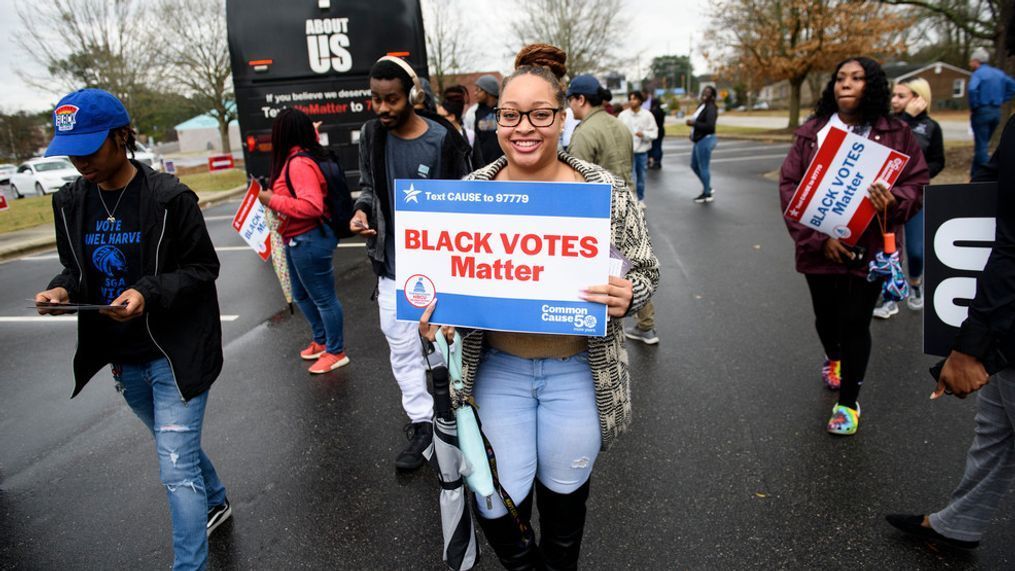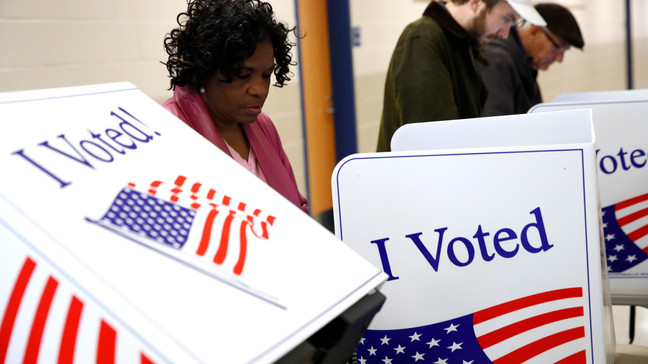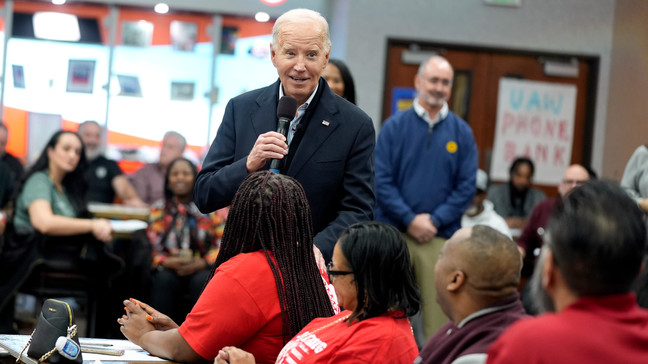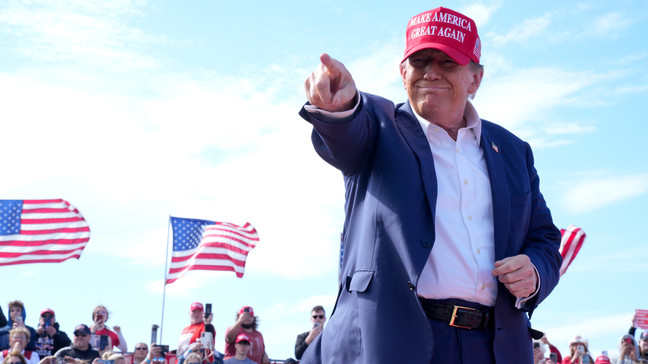Poll shows 'warning flag' for Biden's support among younger Black voters
(TND) — President Joe Biden's appeal to Black voters might be slipping a bit, but he still enjoys overwhelming support among that critical portion of his coalition.
A new report from the Pew Research Center shows that 77% of Black voters would pick Biden over former President Donald Trump if the election were held now.
But that’s lower than the 92% of the Black vote Biden got in 2020, or the 91% Hillary Clinton got in 2016.
And there are further signs of softening support for Biden among younger Black voters.
Will Biden be able to hold onto Black voters this fall?
“He'll keep the older ones. The jury’s out on younger voters,” Oklahoma State University politics professor Seth McKee said Tuesday. “And it's the thread that runs through this election cycle, is disgruntled young voters who, if they weren't disgruntled, would be more Democratic in their preferences.”
People are pretty much locked into their party IDs by their mid-30s, McKee said.
And mobilizing supporters is always easier for a campaign than persuading new people to join its ranks, he said.
But young Black voters might not be as committed to the Democratic Party or to Biden as previous generations.
The Pew Research Center found that 83% of Black registered voters side with Democrats.
And while 84% of Black voters, 50 and older, say they’d vote for Biden now, that drops to 68% among Black voters, ages 18-49.
That leaves 29% of younger Black voters leaning for Trump.
“When you see 29% of under-50 Blacks who say they're going to vote for Trump ... that's the kind of warning flag that gets everybody's attention, because that's just not typical at all,” McKee said.
Disaffected young voters of all races could be a problem for Biden this fall.
“This is a turnout issue mostly,” Todd Belt, the Political Management program director at The George Washington University in D.C., recently told The National Desk. “And so, for Biden, he needs to reenergize these young people, and voters of color, also extremely important to his electoral coalition.”
RELATED STORY: Biden delivers Morehouse commencement address amid campus tumult, declining Black support
But McKee also cautioned against putting too much stock in early polls. The election is still over five months away, and he said there’s “tons of smoke” in early surveys.
A lot of Americans really have yet to tune into the presidential race, he said.
“I'm not saying that these people are lying. I'm just saying that at this moment in time, I think that that number is not going to be reflective of November,” McKee said. “I just don't.”
But he did say the age splits were noteworthy, and perhaps younger Black voters don’t feel as devoted to the Democratic Party as older generations.
“But show me a reason why you would go to the Republican Party,” he said of Black voters. “So, that's kind of the issue.”
Given how close the last election was – it was decided by 41,000 votes across three key states – and how close this one is likely to be, McKee said Trump might be missing an opportunity to sway younger Black voters if he doesn’t give them specific policy positions with which to connect.




